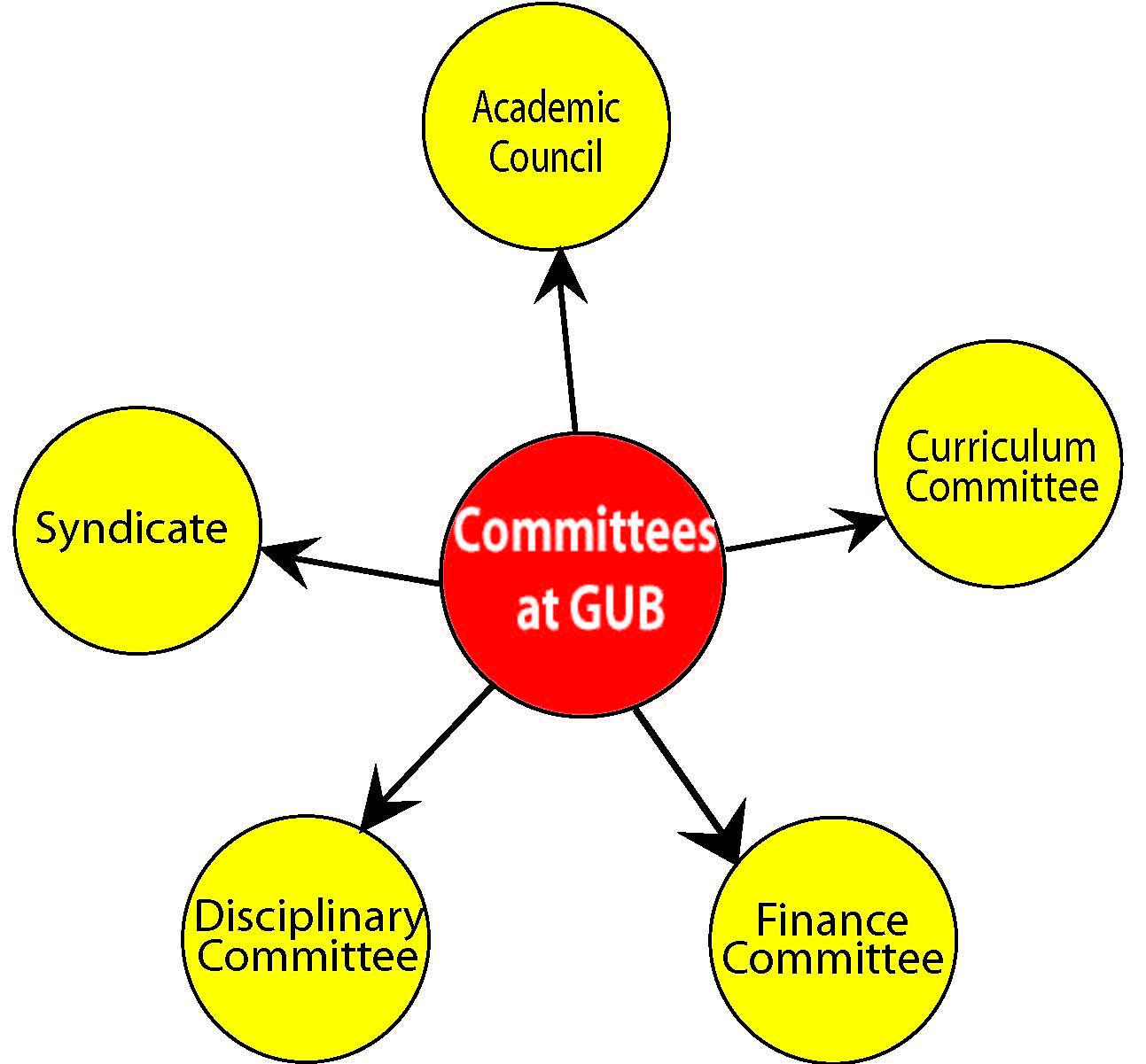
Universities typically have various committees that play crucial roles in decision-making, governance, and administration. The specific committees can vary from one university to another, but here are some common types of committees found in many universities:
Syndicate: The Syndicate is the Executive Authority of the University. As per the Private University Act 2010 under article 17, German University Bangladesh (GUB) has a Syndicate. The Syndicate directs and oversees all academic and administrative activities and general management of the GUB. It evaluates the recommendations of the Academic Council, Finance Committee, Disciplinary Committee and other statutory bodies and recommends these to the Board of Trustees for approval. The Syndicate creates different posts, appoints teachers, officers, staff, makes their service rule and job responsibilities, recommends the pay scale and tuition fees and other fees, etc. The Syndicate Chaired by the Vice Chancellor:
Academic Council: As per the Private University Act 2010 under article 19, The Academic Council is the principal authority of Academic activities of the University. The Academic Council recommends the educational policies of the University and also determines the curricula and courses that can help achieve high educational standards.
Finance Committee: The Finance Committee is a Principal Committee of the University, responsible for all matters relating to the financial affairs of the University encompassing the areas of strategic financial planning, resource management, financial monitoring and policy related issues and to provide timely advice to Syndicate & BoT.Formulation of Annual Budget and get approval by BoT through Syndicate and thereafter monitor performance against these budgets.
-
- Review and approve the University’s systems and procedures for accounting and exercising financial control, taking account of the report of the Audit and Risk Committee.
- Advise the Syndicate and BoTas the University’s Designated Board on the financial status of the University.
- Approve and recommend to the Council long-term financial projections.
Disciplinary Committee:
The University Disciplinary Committee has jurisdiction in the following cases:
- Any cases of alleged violations of university standards and policies that the Resolution Review Board deems sufficiently serious in nature or inappropriate for administrative resolution.
- Any cases of alleged violations of university standards and policies in which one student(s) is filing allegation against another student(s) that cannot be appropriately resolved through the administrative resolution process.
- Appeals referred by the dean of students or designee to review summary actions imposed by a university adjudicator or university staff member.
- Cases in which administrative resolution has not been successful.
Prevention of Sexual harassment Committee: The aims and objectives of the policy on sexual harassment include-
(a) to create awareness against sexual harassment and protection of woman and prevention and restrictions of sexual harassment at the university.;
(b) to create awareness about the consequences of sexual offences;
(c) to create awareness that sexual harassment is punishable offence;
(d) to receive complain and redress the issue.
(e) to initiate an effective mechanism for protection of every student and employee of GUB.
Anti-narcotics Committee:
- Creating awareness among the students against drug abuse.
- Ensuring the institution premises and surroundings – free of drugs.
- Passing information regarding availability of narcotic drugs to Local Police.
- The goal of the campaign was to mobilize support and inspire the students to act against drug use and Narcotic free campus.
Research Committee: The GUB Research Committee (RC) has been so designed as to review studies related to business, humanities, social sciences, science, engineering and technology with a view to ensuring that they conform locally and internationally accepted guidelines. The committee performs monitoring activities during conducting a research.
These committees contribute to the overall governance and functioning of a university, helping to ensure that decisions are made collaboratively and that various perspectives are taken into account. The specific committees and their functions can vary based on the size, structure, and priorities of each university.
